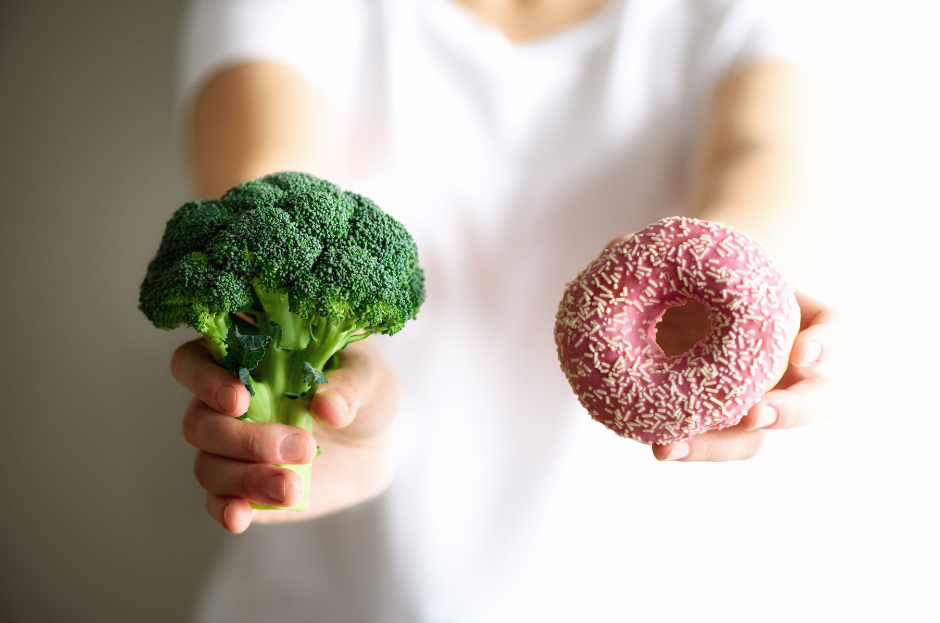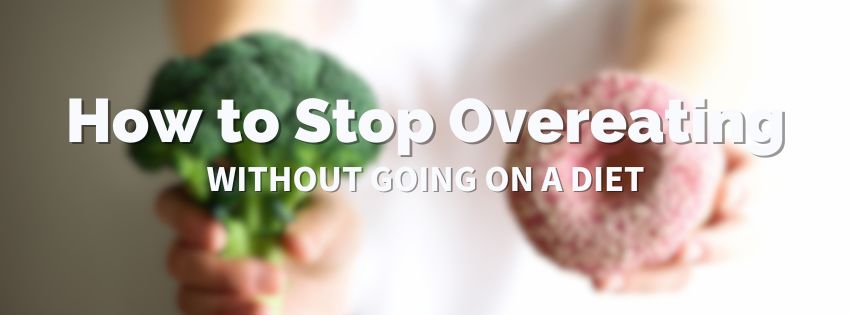Why You’re Overeating (Even When You Know Better)
You’re not lazy.
There’s nothing wrong with you
And no, you don’t need another damn diet.
But if you’re like most of the women I work with, you still find yourself in the kitchen most nights, rummaging through the fridge like you’re going to find answers behind the almond milk.
You ate a balanced dinner.
You’re not physically hungry.
But you’re standing there, eyeing that chocolate or the leftover pasta like it’s a lifeline.
Sound familiar?
This is what emotional eating in midlife often looks like.
It doesn’t always show up as a dramatic binge. Sometimes it’s quiet, just a little bite here, a few crackers there. But it adds up.
Not just on the scale (although let’s be real, that’s part of it), but in how you feel. Physically heavy. Mentally foggy. Emotionally worn out.
And you beat yourself up.
Because you know better.
You’ve read the books.
You’ve tried the meal plans.
You’ve promised yourself, “Tomorrow I’ll be good.”
But this isn’t about willpower. And it’s not about food.
This is about why you’re reaching for something to take the edge off in the first place.
I used to do it, too.
For me, it was mini sugar-free chocolate chips and cottage cheese “ice cream.” I’d eat it straight from the container, standing in the kitchen, telling myself it was okay because it was “healthy.” But I wasn’t eating because I was hungry. I was eating because I was anxious, disconnected, and exhausted from holding it all together.
And here’s the truth: most of the women I coach aren’t overeating because they don’t know what to eat.
They’re overeating because life feels too much and food feels like the one thing that’s easy. Reliable. Comforting.
So if you’re stuck in this cycle, wondering how to stop overeating, especially at night when your defenses are down and the house is finally quiet, I want you to know:
This isn’t a discipline problem.
It’s a self-understanding problem.
And once you see what’s really going on underneath, everything starts to shift.
The Mental Chatter That Won’t Shut Up
It’s exhausting, isn’t it?
The way food takes up so much brain space.
From the moment you wake up, you’re negotiating with yourself:
What should I eat?
Should I skip breakfast?
Was last night really that bad?
You spend the day trying to stay on track, making “good” choices, white-knuckling your way past cravings. You tell yourself you’ll be strong. That tonight will be different.
But by 9:00 PM, something snaps.
You’re in the kitchen – again – grazing, snacking, picking at leftovers you don’t even want.
And then the shame sets in.
You feel defeated. Embarrassed.
Maybe even a little disgusted with yourself.
You wonder why you can’t just be normal about food. Why you can’t stop thinking about food all the time. Why every bite feels like a battle between being “good” and giving in.
This isn’t about hunger.
This is emotional hunger in midlife.
It’s a signal that something deeper needs your attention.
And once you learn how to listen, the obsession quiets down.
That’s the first step toward real freedom from food.
You Don’t Need a Guru.
You Need a Someone Who Gets It.
I get it. Even I’m not impervous to overeating.
I’m a certified women’s health coach, emotional eating coach, and someone who used to feel completely out of control around food.
For years, I did everything “right.”
Tracked my meals. Ran 9 miles on a regular Saturday. Took all the supplements.
And still, I’d find myself standing in the pantry late at night, spoon in one hand, shame in the other.
I didn’t need another plan.
I needed someone to help me rebuild trust with my body.
That’s what I do now for women in midlife.
This work isn’t about following rules.
It’s about learning how to listen to yourself again — and honoring what you hear.
You can stop overeating.
And you don’t have to do it alone.

Feeling stuck in a cycle with food?
It’s not about willpower.
It’s not about discipline.
And it’s definitely not about needing another diet.
Most overeating has nothing to do with food.
Want to know what’s really going on?
Download my free guide:
82 Reasons You Overeat That Have Nothing to Do With Food
You’ll get clear, eye-opening insights that help you stop blaming yourself and start seeing what’s actually driving your cravings.
It’s free. It’s honest. And it might be the most helpful thing you read today.
How to Stop Overeating Without Dieting
This is where things shift.
If you’ve tried every diet and still find yourself eating when you’re not hungry, it’s time to look at a different approach. One that doesn’t rely on rules or restriction, but instead helps you understand yourself more deeply and treat your body with respect.
Here’s what that actually looks like.
A. Understand What You’re Really Hungry For
Let’s get honest for a second: most of us aren’t overeating because we’re physically hungry. We’re eating because we’re overwhelmed, tired, touched-out, or just want a damn break from the mental noise.
If you’ve ever thought, “Why do I eat when I’m overwhelmed?” you’re not alone. For many of us, food is the fastest, most accessible form of comfort. It’s always there. It doesn’t ask questions. And for a moment, it works.
But here’s what I want you to know: that craving isn’t random. It’s a signal.
You might be hungry for comfort, not calories.
For quiet. For rest. For someone to take care of you for once.
This is emotional eating in midlife. It’s not about weakness or lack of control. It’s about your nervous system trying to regulate through the most familiar tool it knows: food.
Instead of judging that, get curious.
Next time you want to eat, ask yourself:
What am I really needing right now?
Even just pausing to ask the question can change the way you respond.
B. Build Body Awareness
Most of us were never taught to listen to our bodies. We were taught to follow diets, ignore cravings, and push through discomfort.
But if you want to stop overeating, especially in midlife, you need to learn to trust your body again.
One tool I use with my clients is the hunger scale. On a scale of 1 to 10, how hungry are you before you eat? How full are you when you stop? This simple check-in can rewire everything.
Another one is the body scan. Just closing your eyes and noticing how you feel from head to toe. Are your shoulders tight? Is your stomach gurgling or just restless? These small moments of connection help you listen to your body cues instead of overriding them.
At first, it might feel awkward. You may second-guess yourself. That’s normal. But over time, this is how you build body trust in midlife: by tuning in rather than checking out.
When you’re connected, food stops being so loud.
And eating becomes just one part of life, not the main event.
C. Stop Fighting Food
This part might sound strange, but stay with me:
You’ve got to stop trying to “control” food.
Every time you say, “I shouldn’t eat that” or “I’ll be good tomorrow,” you create a push-pull relationship that leads to rebellion. It’s the classic diet cycle — restrict, crave, overeat, shame, repeat.
But the truth is, when you give yourself permission to eat what you want, in quantities that feel good, you take the drama out of food.
This is called intuitive eating. And no, it’s not a free-for-all. It’s about slowing down, paying attention, and making choices based on how you want to feel, not what you’re “allowed” to have.
When you stop labeling foods as good or bad, your body starts to settle.
You stop eating to rebel.
And you naturally begin to make more balanced, non-diet eating habits that actually stick.
This is how you ditch the diet and stop overeating. Not through control, but through trust.
D. Reclaim Pleasure Outside of Food
If food is your only pleasure, you’re going to have a hard time letting go of it.
So many of us reach for food not because we’re hungry, but because we’re bored, lonely, or emotionally drained. You don’t need more discipline. You need more joy.
Stress eating in your 50s often isn’t about the food. It’s about living in a constant state of depletion, where a handful of cookies feels like the only thing that’s just for you.
This is where overeating and self-care go hand in hand.
Ask yourself:
- When was the last time you did something just because it felt good?
- What would it look like to give yourself small moments of fun or beauty each day?
It could be a solo walk with your favorite playlist.
Buying the expensive hand lotion just because it smells like vacation.
Or putting your phone away and lying down in the middle of the day with zero guilt.
When you start building a life with enough pleasure in it, food becomes less of a need.
You still enjoy it – but you’re not depending on it to get through the day
Here’s the next section, centered on what’s at stake—written to reflect the emotional weight of staying stuck, in your voice and tone:
What It Costs to Stay Stuck
If nothing changes, this doesn’t magically go away.
The mental tug-of-war with food.
The private shame after eating.
The constant chatter in your head about what you “should” or “shouldn’t” have eaten.
It chips away at your confidence.
It takes up space that could be used for joy, connection, and calm.
And here’s what I really want you to hear:
This isn’t about getting to a goal weight.
This is about reclaiming your energy and focus.
It’s about creating a sense of midlife wellness that feels doable and grounded — not performative or punishing.
Because sustainable weight management isn’t about eating perfectly.
It’s about learning how to stop binge eating without dieting.
It’s about peace.
And peace isn’t just a nice idea.
It’s the thing that finally lets you breathe.
What Life Looks Like on the Other Side
Imagine this:
You go out to dinner and actually enjoy your meal — no mental tallying, no guilt trip afterward, no plans to “make up for it” tomorrow.
You open your pantry and don’t feel pulled toward the snacks.
Not because you’re being good, but because food just… doesn’t have that grip anymore.
This is what freedom from food obsession feels like.
Not perfection — but peace.
One of my clients, Chris, used to white-knuckle her way through every afternoon. She’d eat to numb the exhaustion from caregiving, from work, from just holding it all together. Now? She eats when she’s hungry. Stops when she’s had enough. And more than that, she sleeps better, moves more, and feels proud of how she takes care of herself.
This is what healthy habits for women over 50 can look like.
Not restrictive. Not rigid.
Just calm. Connected. Yours.
That’s what peace with food actually means.
Want Help Seeing What’s Really Going On?
If you’ve ever thought, I don’t know why I do this, you’re not alone.
Most of the emotional eating patterns we fall into aren’t about food at all.
They’re rooted in overwhelm, habits, beliefs, and expectations you didn’t even know you were carrying.
That’s why I created this free resource for you:
82 Reasons You Overeat That Have Nothing to Do With Food
It’ll help you spot the real triggers behind your choices — and start building awareness without shame.
Because the first step to knowing how to stop overeating is understanding why you do it in the first place.
Go ahead and download it now.
You deserve this kind of support.
